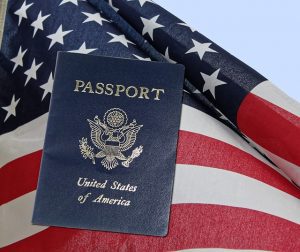Posted in Business Litigation, Civil Litigation

Arbitration is a non-judicial way to resolve legal disputes. Instead of having a judge or jury decide the matter one or more people sit as arbitrators and decide the case. These proceedings are meant to be a faster, less expensive way to resolve disputes, but they are not perfect. There must be a binding, legal agreement between the parties where they agree to have disputes resolved through arbitration.
If you have a dispute with a foreign company, depending on the law and facts of the case, the issue may go to arbitration where that foreign company is located or here in the U.S. If arbitration occurred overseas the successful party may try to have it enforced here in the U.S. These cases could be very complex because in addition to the laws underlying the dispute and the arbitration process, international law also comes into play.
There are two international treaties that cover enforcement of arbitration awards, the United Nations Convention on the Recognition and Enforcement of Foreign Arbitral Awards, which has 148 party states (most of the world’s nations, except Taiwan and some others) and the 1975 Inter-American Convention on International Commercial Arbitration with 17 ratifying states in the Americas. Both are similar. Through the Federal Arbitration Act an action to enforce an award
under either convention can be made.
The U.S. court asked to enforce the award must have personal jurisdiction over the matter (the court has the power to make an order affecting a person in its jurisdiction). If a corporation is the party, there is jurisdiction if the corporation is located there or consents to personal jurisdiction. There may also be ‘quasi in rem’ jurisdiction if the corporation has an interest in real property or personal property under the jurisdiction of the court. The party wanting to enforce the award needs to apply for an order confirming it within three years after the arbitration award is issued.
Both conventions allow courts not to recognize a foreign arbitration award in limited situations. These awards are presumed to be valid. The party objecting to its enforcement has the burden of proving it’s invalid because the,
- Party lacks mental capacity,
- Arbitration agreement is not valid,
- Objecting party couldn’t participate in the process because it didn’t get notification of the appointment of the arbitrator or the applicable procedure,
- Objecting party was unable to present a defense,
- Issue that was decided was outside the scope of the agreement,
- Arbitrator(s) didn’t follow the parties’ agreement or applicable law,
- Award is not yet binding,
- Award has been annulled or suspended where it was made,
- Dispute’s subject matter can’t be settled by arbitration under that country’s law, or
- Recognition or enforcement of the award would violate U.S. public policy.
If your company is now or may be involved in a foreign arbitration proceeding in the future, contact our office so we can discuss the matter. As you can see there are many legal complexities that need to be addressed and this is a situation your business should not handle without legal representation.
